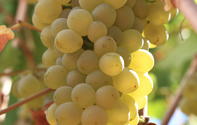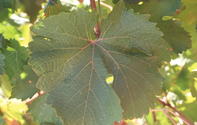Description
Chenin blanc is a white wine variety used for the production of table wines, sparkling wines and fortified wines, such as port, sherry and brandy. It is the most widely planted wine grape variety in South Africa. DNA analysis has identified Savignin as one of its parents. The identify of the other parent is uncertain.Origins
Chenin blanc has its origins in the Anjou-Touraine area of France. The variety used to be known as Chènere, but the name was changed in the 15th Century to Chenin blanc, after the mountain in the region, Mont Chenin.Other Names
Franc-blanc, Franche, Pineau, Pineau de la Loir and Pinot Blanco. In South Africa it is still sometimes referred to as Steen.Production in South Africa
Chenin blanc is believed to have been among the first vine cuttings to arrive in the Cape during Jan van Riebeeck ’s time. It was long referred to as Steen and even believed to be a unique South African mutation of Chenin blanc, until the mid-1960s when professor CJ Orfer, the then head of Viticulture at Stellenbosch University, established, beyond all doubt, that it was in fact Chenin blanc. Various reasons are given why South Africans referred to the cultivar as Steen. Governor Simon van der Stel, for one, thought the grapes to be of German origin and compared it to quality German Stein wines. Another explanation, is that it formed the corner stone or in Afrikaans “hoeksteen” of the South African wine industry, because of its versatility and adaptability.Production Regions
It is planted in all the wine producing regions of South Africa, with the biggest areas under production in the Breedekloof, Olifants River, Paarl, Swartland and Worcester.Growth and Ripening
The vines are mild to vigorous growers, with an average production potential of 22t/ha to 23t/ha. The grapes ripen early mid-season, from the second half of February.
Berries and Leaves
Berries small, oval and have a greenish yellow colour. The skin is soft and thin. The flesh is very juicy. The leaves are medium-sized, round, three lobed and have a dark green colour.

